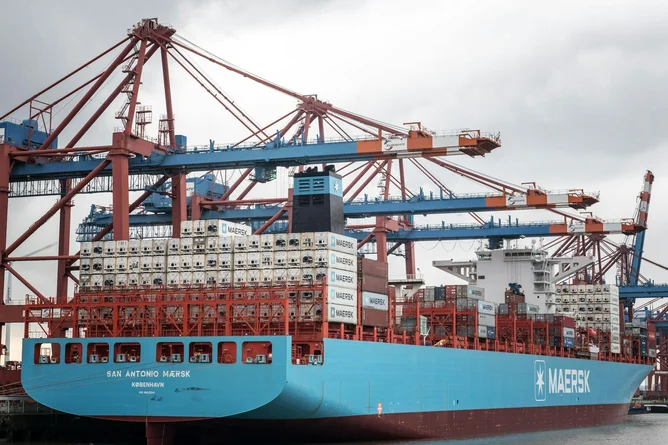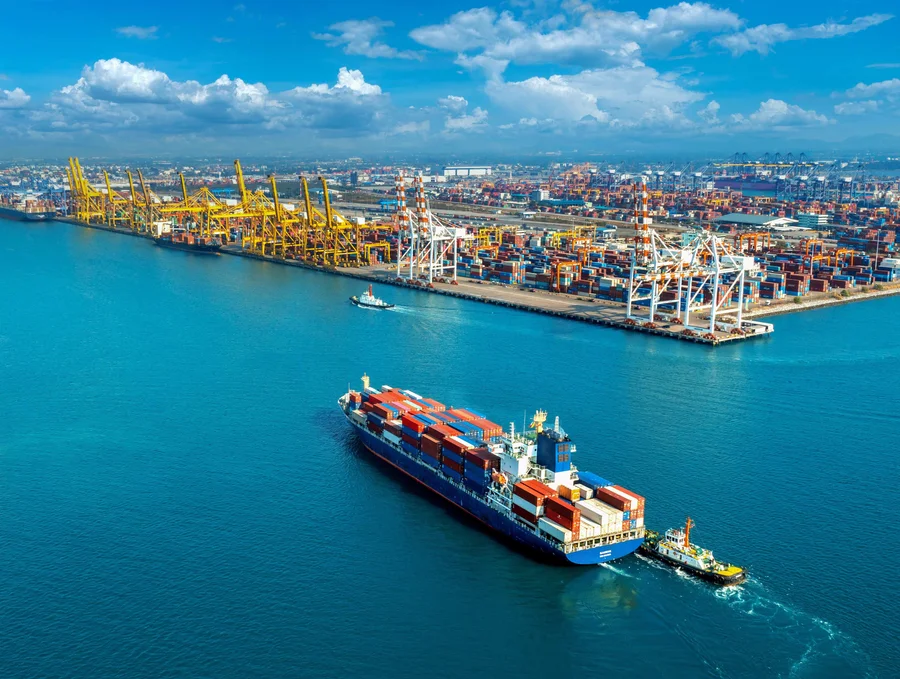Moody’s Ratings has examined the challenges facing the global shipping industry’s path to decarbonisation, including the scarcity of sustainable fuels.
It’s widely recognised that the global shipping industry’s path to decarbonisation in the coming years will be fraught with economic, logistical and technological hurdles.
Now, a report from Moody’s Ratings has taken a deeper dive into these difficulties, with particular focus on the scarcity of sustainable fuels and the high costs and long lead times for new vessel orders.
Key insights to emerge from Moody’s Ratings’ study include:
- Urgent need for decarbonisation: The global shipping industry faces an urgent need to decarbonise, but a lack of readily available sustainable fuels is presenting significant challenges.
- Maersk’s strategy shift: Maersk‘s decision to order LNG-powered ships highlights the scarcity and high costs of sustainable methanol, a critical barrier to decarbonisation.
- High costs and long lead times: The transition to sustainable options is being complicated by high costs and long lead times for new vessel orders.
- Lack of coordinated regulations: The absence of globally coordinated regulations and insufficient incentives for green fuel adoption remain significant hurdles.
An urgent need to decarbonise
As it stands, the global shipping industry produces around 2% of the world’s carbon emissions and faces an urgent need to decarbonise.
Moody’s Ratings points to Maersk’s recent U-turn on ships powered by liquefied natural gas (LNG) as an example of the lack of readily available sustainable fuels.
The Danish shipping giant had previously exhibited scepticism in relation to use of LNG as a marine fuel, before pressing on with ordering 50-60 dual-fuel vessels.
Examining the prospect of significant CO2 emissions reductions, Moody’s highlights that, as of August 2024, close to 90% of all commercial vessels run on traditional bunker fuel, with the bulk of the remaining 10% running on LNG.
Looking at the order book, to be delivered over the next four years, a still-high share of more than 70% will run on either bunker fuel or LNG by 2029.
LNG, while emitting less CO2 than marine diesel at the time of burning, is still a fossil-based fuel – meaning it cannot truly be counted as an alternative fuel source in the long term. The reduction in LNG’s life cycle emissions versus traditional bunker fuel is still heavily debated.
Combining the order book with today’s fleet – in other words, not scrapping older vessels – would result in a maritime industry where more than 90% of the fleet burns fossil-based fuel in 2029.
What’s more, Moody’s reports that only around half of vessels shown to use green fuels in the expected fleet are ‘methanol/ammonia ready’, meaning engines require expensive and time-consuming upgrades following delivery.

Maersk’s U-turn
Delving into Maersk’s recent decision to start ordering ships that can run on LNG, Moody’s says this was primarily driven by the scarcity and high costs of sustainable methanol.
“There is not enough [sustainable methanol] available currently to satisfy demand and will not be during at least the current decade, and possibly beyond that,” the report reads.
With upcoming regulations and bold environmental goals in mind – including a 35% reduction in absolute Scope 1 well-to-wake emissions by 2030 and 96% by 2040 – Maersk was left with little option but to change tack.
But the recalibration also served to highlight a critical barrier to significant decarbonisation in shipping: its reliance on fuels that still fall short of truly green alternatives.
Moody’s Ratings’ report adds: “The industry’s slow transition to more sustainable options is further complicated by the current high costs and long lead times associated with new vessel orders, a consequence of a post-pandemic surge in demand.”
Why shipping companies must modernise
Moody’s calls the absence of globally-coordinated regulations for reducing absolute carbon emissions, in conjunction with insufficient incentives for shipping companies and their customers to boost demand and production of green fuels, “credit negative” for the shipping industry.
With the UN’s International Maritime Organization (IMO) setting carbon emission reduction targets for 2030 and 2040, there is a pressing need for shipping companies to modernise their fleets – despite the lack of significant penalties for noncompliance.
However, investing in new ships – such as those equipped to run on methanol or ammonia – could ultimately prove disadvantageous in 15 years’ time if the fuel type becomes unavailable.
The report concludes: “While support for a global emissions levy is increasing within the IMO, its adoption remains uncertain.
“In addition, as long as regulators remain focused solely on cutting emissions without enacting policies that stimulate demand and production of green fuels, the shipping industry will not be in control of its own decarbonisation path.”



